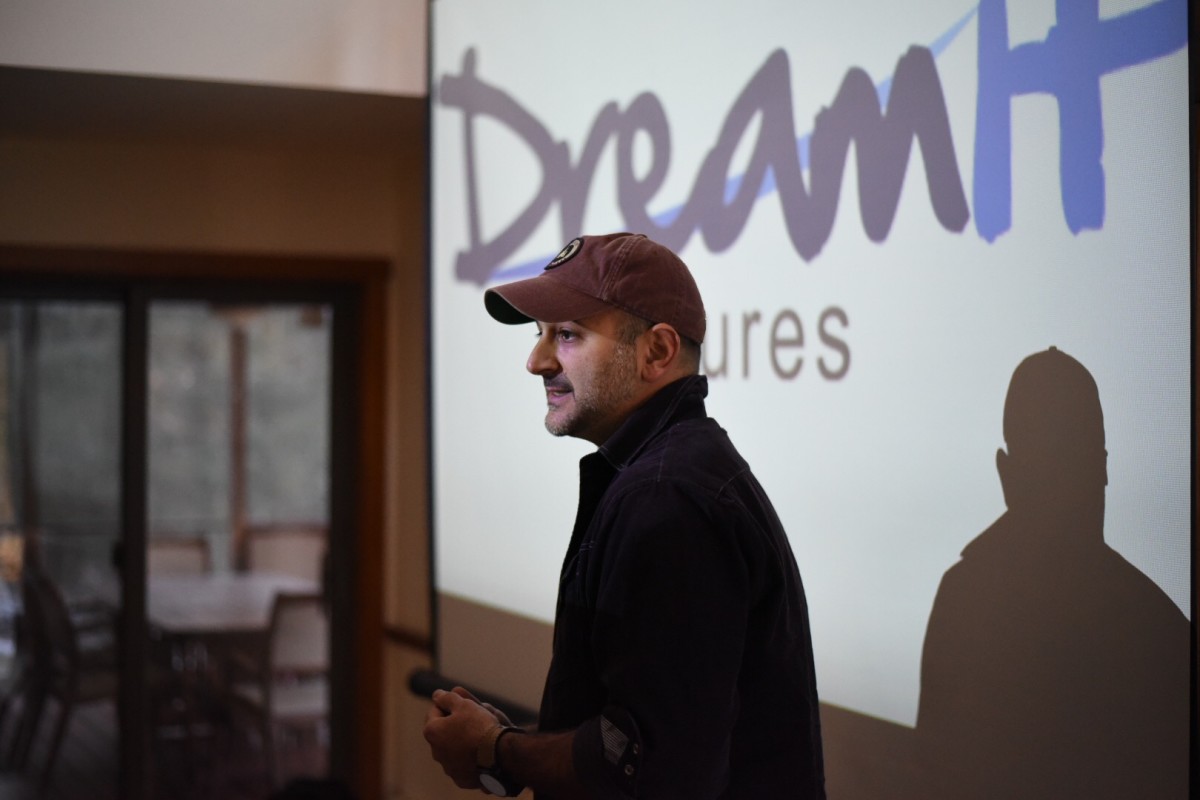DreamIt Ventures is making a major change to its model.
For the last eight years, the accelerator has hosted early-stage startup bootcamps in Philadelphia, later expanding to other cities like Austin, New York and Baltimore. Every participating startup had to move to the host city for the duration of the 12-week program.
That’s no longer the case.
We live in a global economy now. There's no need to create boundaries where there doesn't need to be boundaries.
DreamIt announced Monday that it would no longer host multiple, separate programs in different cities. Instead, it’ll host industry specific bootcamps — DreamIt Health, DreamIt EdTech and DreamIt Overdrive, focused on consumer and enterprise tech — that cater to both early-stage and later-stage startups. The later-stage startups will not be required to move to a host city. DreamIt will still run local programming for early-stage startups in Philadelphia, New York, Baltimore and Houston. (Houston is a new city for DreamIt.)
It’s a strategy to find more deal flow for DreamIt.
“We live in a global economy now,” said DreamIt’s new CEO, Avi Savar. “There’s no need to create boundaries where there doesn’t need to be boundaries.”
In other words, DreamIt wants to lower the barrier to entry. Some startups, often later-stage ones, won’t apply to DreamIt because of the residency requirement. Maybe they’re older and more settled in their own city, maybe they have a family that they don’t want to uproot.
The later-stage entrepreneurs will not have to sign up for the traditional accelerator model of investment in exchange for equity.
“Not all startups are created equally,” said Savar, 42, of Manhattan. “That’s an inherently flawed approach in the accelerator model.”
The new DreamIt model, he said, is a way to better serve more kinds of entrepreneurs.
The news comes as DreamIt is wrapping up fundraising for its latest fund. DreamIt declined to comment on the size of the fund at this time.
It also comes shortly after three local program heads left DreamIt, suggesting a move away from the local: Patrick FitzGerald, who ran DreamIt Philadelphia, Elliot Menschik, who ran DreamIt Health and Jason Hardebeck, who ran DreamIt Health Baltimore.
So what does it all mean for Philadelphia?
DreamIt has been a major part of the city’s tech scene growth, importing startups from across the country who might never have thought twice about Philly, even if many of them do not stay. In an interview two years ago, DreamIt founder David Bookspan said the accelerator was focused on developing the city’s tech scene — “When we started [DreamIt], we wanted to give back to the community in Philadelphia,” he said — and was working on developing more ways to keep its startups in the city.
Is that still part of DreamIt’s mission?
Savar says yes. Economic development is important to DreamIt.
“We will still be pushing that agenda forward,” he said, “but it’s something we can’t necessarily do alone.”
This, he said, is where DreamIt’s partners come in, like Penn Medicine and Independence Blue Cross. Those partners create opportunities — reasons that startups will stay. It’s something we’ve seen with DreamIt Health, many of whose startups have stayed in Philly because they’re running pilots with those partners.
“If opportunities don’t exist, there’s no reason for them to stay,” Savar said.
Savar will be based in New York City, while Steve Barsh, who will oversee all DreamIt’s programs, will be based in Philadelphia.
As far as other DreamIt staffers go: head of programs Melissa Koenig is based in Philly, as well as newly-installed head of entrepreneur development Maureen Rinkunas. DreamIt also hired a head of startup recruiting earlier this year — Jodie Sweitzer, based out of New York.
Companies:
DreamIt Ventures
Join our growing Slack community
Join 5,000 tech professionals and entrepreneurs in our community Slack today!
Donate to the Journalism Fund
Your support powers our independent journalism. Unlike most business-media outlets, we don’t have a paywall. Instead, we count on your personal and organizational contributions.

Half of Pennsylvania’s federal buildings are set to be sold under Trump admin plan

RealLIST Startups 2025: Meet 20 Philly startups hot on the track to success

Biotech startups are still winning federal grants, accelerator founder says — but the money is taking longer to trickle in


